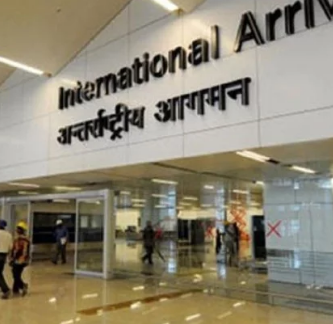In a distressing act of sacrilege, a mazar, a place of religious significance for the Muslim community, was set on fire in Gurugram. The incident has ignited a wave of outrage and concern among citizens, as such attacks on places of worship strike at the heart of religious harmony and tolerance. This article delves into the details of the incident, its impact on the community, and the urgent need for unity and respect for religious diversity in Gurugram and beyond.
The Desecration of a Sacred Site:
The mazar, a symbol of spiritual reverence for the Muslim community, stood as a beacon of faith and devotion for generations. The senseless act of setting it ablaze has not only caused physical damage but also left emotional scars on the hearts of those who hold it dear. The incident has also sparked fears of communal tension and animosity within the city.
Need for Swift Investigation and Justice:
Local authorities were quick to respond to the incident by registering a First Information Report (FIR). This move is a crucial step towards bringing the perpetrators to justice and restoring a sense of security for the affected community. A thorough and transparent investigation is vital to identify the culprits responsible for this reprehensible act and hold them accountable under the law.
Promoting Interfaith Harmony and Understanding:
The incident in Gurugram serves as a somber reminder of the importance of fostering interfaith harmony and respect for religious diversity. India’s strength lies in its unity amidst diversity, where people of various faiths coexist in a tapestry of traditions and beliefs. Such acts of vandalism not only harm the targeted community but also threaten the very fabric of India’s secular identity.
It is incumbent upon religious leaders, community figures, and civil society to come together and promote dialogue, understanding, and empathy among different religious groups. Initiatives that encourage interfaith events, educational programs, and open discussions can foster mutual appreciation and debunk stereotypes, helping to build a more inclusive society.
Tackling Hate and Prejudice:
Acts of religious hatred often stem from prejudice and misinformation, and it is essential to address these root causes. Schools and educational institutions should prioritize imparting values of tolerance, respect, and empathy, ensuring that the next generation grows up with an understanding of the importance of religious coexistence.
Additionally, media outlets and social media platforms should take responsibility in disseminating accurate information and promoting messages of unity rather than divisive narratives. Responsible journalism and thoughtful content can play a significant role in quelling tensions and fostering an atmosphere of peace.
The desecration of the mazar in Gurugram is a grim reminder of the challenges we face in upholding religious harmony and diversity. It calls upon all sections of society to stand together against acts of hatred and prejudice. By promoting interfaith understanding, encouraging dialogue, and taking swift action against those who seek to divide, we can work towards preserving the rich tapestry of religious pluralism that defines our nation. It is through unity and respect that we can heal the wounds inflicted on the mazar and reaffirm our commitment to a peaceful and harmonious coexistence.
 Dainik Nation News Portal
Dainik Nation News Portal


